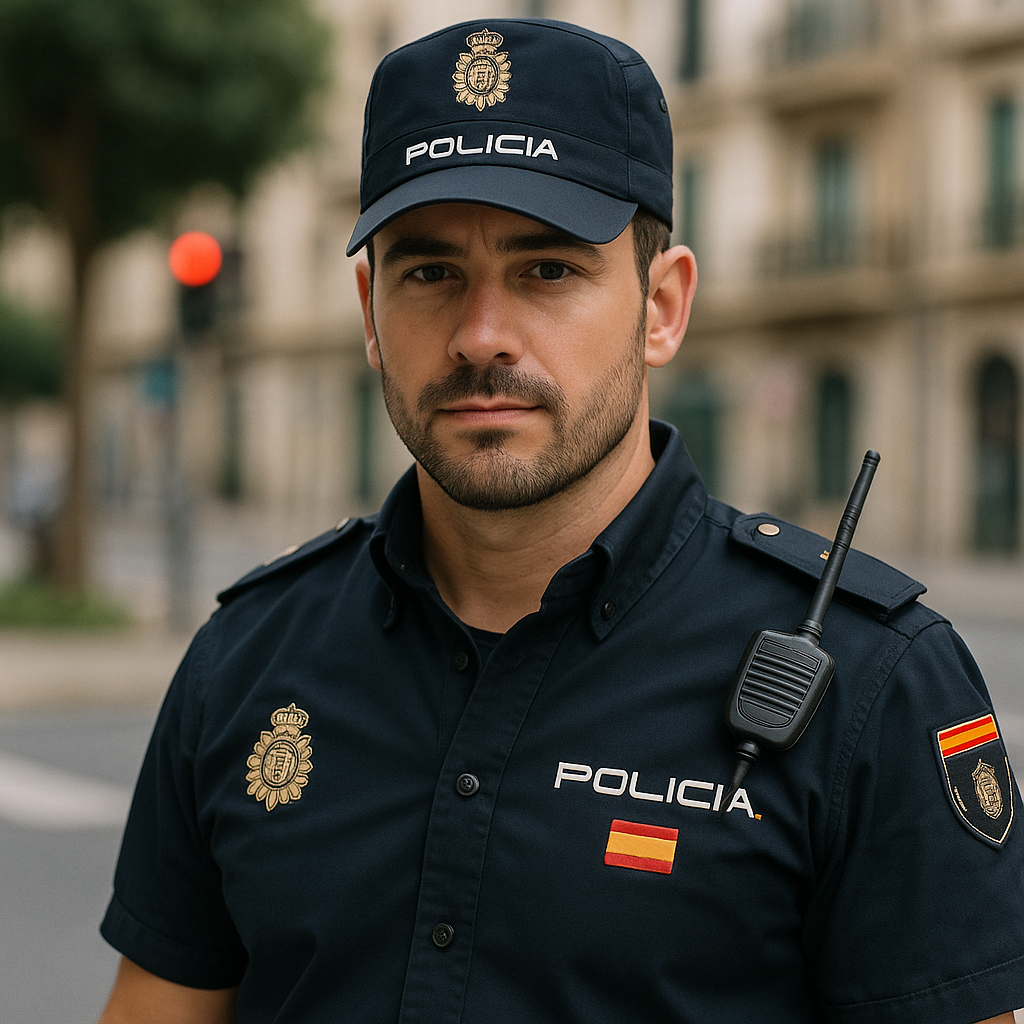Relocating to a new country can be an exciting yet overwhelming experience—especially when it comes to understanding how public services operate. One common area of confusion for expats settling in Mijas Costa is the presence of multiple types of police, all with different uniforms and responsibilities. To help you feel more confident and secure in your new surroundings, here’s a breakdown of the various police forces you’ll encounter in Mijas Costa and across Spain.
1. Policía Local (Local Police)
👮♂️ Role: Community policing and local enforcement
📍 Where you’ll see them: Around town centres, traffic roundabouts, schools, local festivals
The Policía Local are managed by the town hall and focus on maintaining public order within the municipality. Their primary responsibilities include traffic control, parking enforcement, municipal by-laws, and crowd management during events. They also handle minor infractions and assist with local emergencies. They are the most visible police presence in Mijas Costa.
Good to know for expats:
If your car is towed or you receive a parking fine, it’s likely the Policía Local were involved. They can also assist with local issues like noise complaints or lost property.
2. Guardia Civil
🚓 Role: National security, rural areas, and road safety
📍 Where you’ll see them: Coastal roads, rural zones, border checkpoints
The Guardia Civil is a military-style police force with national jurisdiction, although they often operate in more rural or less urbanised areas. They handle serious crimes, drug trafficking, and border control, and are also in charge of traffic safety on intercity roads. You may spot them along the coastal A-7 or AP-7 motorways and in countryside areas of Mijas Costa.
Good to know for expats:
The Guardia Civil can be strict, especially with traffic violations. Always carry your driving licence, vehicle documents, and ID when driving.
3. Policía Nacional (National Police)
🚔 Role: Immigration, passports, serious crime, and national security
📍 Where you’ll see them: Larger towns and cities like Fuengirola and Málaga
The Policía Nacional operate under the Ministry of the Interior and are responsible for national security in urban areas. They handle crimes such as drug enforcement, organised crime, and terrorism prevention. Most importantly for expats, they are in charge of processing residency permits (TIE cards), foreigner registration, and passport-related issues.
Good to know for expats:
You’ll need to visit the Policía Nacional in Fuengirola or Málaga for anything related to immigration, residency, or fingerprinting. Appointments are usually required in advance.
4. Private Security and Urbanización Guards
🛡️ Role: Residential community security and commercial site monitoring
📍 Where you’ll see them: Gated communities, shopping centres, golf resorts
Many urbanisations in Mijas Costa employ private security services. These guards are not official police but are often your first point of contact for incidents within gated communities or private developments.
Good to know for expats:
While they don’t have arrest powers, they can manage access, monitor CCTV, and liaise with the police on your behalf.
Final Thoughts: Who Do You Call?
| Situation | Call |
|---|---|
| Traffic accident or parking issue | Policía Local |
| Residency or passport issues | Policía Nacional |
| Crime in rural/coastal areas | Guardia Civil |
| Emergency (any type) | Dial 112 (multi-language service) |
Mijas Costa remains one of the safest areas on the Costa del Sol, and these overlapping police forces contribute to that security. Understanding who to turn to in different situations can help make your life here smoother and stress-free.
Thinking of relocating to Mijas Costa or purchasing a home in a secure, well-managed urbanisation? Get in touch with us at Target Property Spain where we help expats find their ideal property and navigate life in Spain with confidence.
